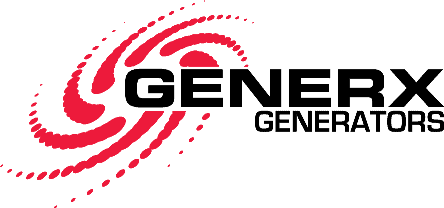Often, the generator installation process isn’t as simple as purchasing an appliance and having it placed in your home or business. Standby generator installation can require significant preparation in the form of obtaining all of the necessary approvals and permits from your local government or HOA.
Once approvals are obtained, the installation process can begin. You might be wondering, “Why is it important for me to know what goes on? Won’t my installer take care of everything?” Although installing a standby generator is best left to professionals, you will be directly involved in some key steps of the process, like obtaining permits. What’s more – knowing what goes on during installation means you’ll be better able to identify any issues your generator may have in the future.
As a new or long-term generator owner, the best thing you can do to guarantee the life of your generator is to know the basics – and that starts with installation.
Obtaining Necessary Permits
The term “power failure” probably brings to mind a total blackout of your entire home, leaving you and your family in the dark without a power source. You’ll probably start thinking about installation cost, do I need propane gas, how do I choose a generator expert, will this cost a few thousand dollars, is there annual maintenance, aren’t generators in limited supply?
This is why a team, like GenerX, is needed to install your generator. We’ll take care of obtaining the right permits and begin work immediately!
Are the Rules Different in Different Areas?!
Various counties, towns, and other local governments have different regulations regarding generator installation, whether it’s residential or commercial. Be sure to check any pre-installation requirements outlined by your local governing authority before the installation process begins. Usually, the most important step will be to get a permit for your generator, which most authorities are able to release on the same day you apply for them.
If you’re looking to install a residential natural gas-powered generator and belong to a Homeowner’s Association, familiarize yourself with your HOA’s generator installation permitting process and get approval prior to installation.
/image

Laying the Groundwork
Your new generator installation process requires prepping the bare ground where it’ll be placed with a concrete pad or gravel. This base is crucial to your generator’s performance and functionality, and it will be put in place by your generator installation company. Once the slab is dried and the generator is placed on it, the more complicated wiring process can begin.
Connecting to Power Sources
Once your standby generator is placed, the next step in the generator installation process is to make sure its transfer switch is placed and wired. Following that, your generator will be incorporated into your business or home’s existing electrical configuration as a secondary source of energy.
Once the wiring is set up, the fuel line must be installed. If your property contains natural gas lines, your generator will be connected to that. Otherwise, it can be connected to your propane tank and function just as well. Either a natural gas line or propane connection is required to fuel your home generator; if your property does not contain either, one of the two must be installed in order to get your generator up and running.
image

Power Outage Simulation
Outage simulation comprises part of your generator’s final inspection. Your technician will simulate an outage on-site to make sure your generator is up and running as it should be. From then on, top-of-the-line standby generators have the capability to run periodic self-checks to diagnose any potential issues and to ensure that all is functioning as it should be.
Being aware of the many steps of your generator installation process is the first thing you can do for responsible generator ownership. By being proactive about obtaining all necessary permits and approvals, you’ll be prepared to get the installation process up and running without a hitch. Understanding your generator’s installation process empowers you to ask informed questions to your technician, as well as to understand the maintenance needs of your generator down the line. If you found this helpful and would like additional information and expert advice about generator installation, maintenance, and repairs, don’t hesitate to call us at (813) 280-0543 or email us at sales@fixmygen.com
Ask Away! GenerX is ready to answer all your questions!
GenerX is the #1 home generator contractor in Florida. Reach out today, so our team can find what’s best for you!

